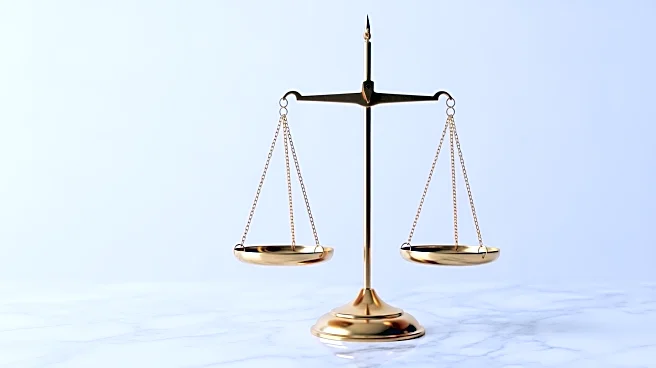What's Happening?
Ivory Coast is currently counting votes following a presidential election where the incumbent, President Alassane Ouattara, is seeking a fourth term. The election has been marked by controversy as key
opposition figures were barred from running, leading to a predicted victory for Ouattara. The election, which took place in a generally peaceful atmosphere, saw a voter turnout of approximately 50%, although this figure varied across different regions. The election is significant as it highlights the ongoing trend of aging leaders maintaining power in Africa, with Ouattara potentially extending his rule to nearly two decades if successful.
Why It's Important?
The election in Ivory Coast is crucial as it underscores the political dynamics in West Africa, where long-standing leaders continue to dominate the political landscape. Ouattara's potential victory could have significant implications for the country's political stability and economic policies, particularly in the cocoa industry, where Ivory Coast is a leading global producer. The exclusion of major opposition candidates raises concerns about the democratic process and could lead to political unrest. The international community, including former colonial power France, has shown limited scrutiny, which may affect future diplomatic relations and economic partnerships.
What's Next?
As the vote counting continues, the results are expected to be announced between Sunday and Monday. The outcome will likely influence the political climate in Ivory Coast, with potential protests from opposition supporters if Ouattara is declared the winner. The international community may also respond to the election's credibility and its implications for regional stability. The government will need to address economic challenges, including poverty and unemployment, to maintain public support and ensure long-term stability.
Beyond the Headlines
The election highlights broader issues of governance and democracy in Africa, where aging leaders often face criticism for clinging to power. The exclusion of opposition candidates raises ethical questions about electoral fairness and the role of international observers in ensuring transparent elections. The situation in Ivory Coast could set a precedent for other African nations facing similar political challenges, influencing regional political trends and governance models.









